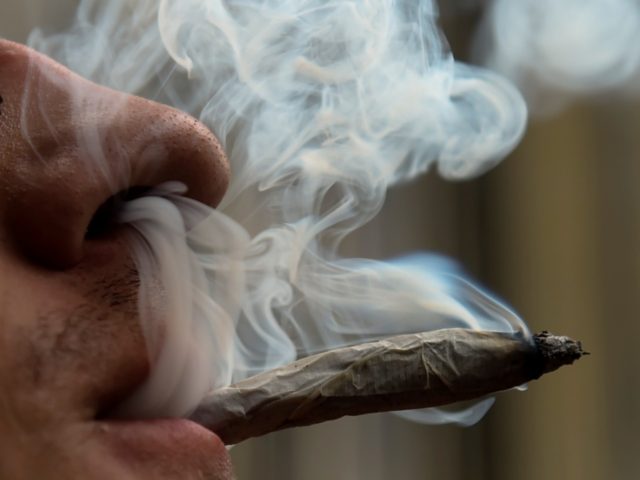Sen. Bernie Sanders (I-VT) is proposing a $10 billion federal program to help former convicts work in the marijuana industry. The proposal, which he released Thursday at approximately 4:20 p.m. Eastern, is part of his comprehensive plan to legalize marijuana nationwide.
Sanders unveiled his sweeping plan to legalize marijuana on Thursday, noting that he will not wait on Congress to act. Instead, he will take executive action within the first 100 days in office.
“Today, the government considers marijuana as dangerous as heroin,” Sanders tweeted following his plan’s release. “That’s idiotic.”
“As president I will immediately issue an executive order to declassify marijuana as a controlled substance,” he added:
Today, the government considers marijuana as dangerous as heroin.
That’s idiotic.
As president I will immediately issue an executive order to declassify marijuana as a controlled substance.
— Bernie Sanders (@BernieSanders) October 24, 2019
His plan states:
Under this plan, not only will Bernie take executive action to legalize marijuana by removing it from the Controlled Substance Act, he will expunge past convictions of marijuana related offenses, and ensure that victims of the War on Drugs are not passed over by the burgeoning marijuana industry.
His plan not only promises to expunge past convictions, but pledges billions of dollars to communities disproportionately affected by the War on Drugs. One of the ways he plans to reinvest in those communities is by creating federally-funded programs – using tax revenue generated by legalizing marijuana – that would help provide ex-convicts with opportunities to work in the marijuana industry.
Per his plan:
- With this revenue we will also create a $10 billion grant program to focus on businesses that are at least 51% owned or controlled by those in disproportionately impacted areas or individuals who have been arrested for or convicted of marijuana offenses.
- Provide formerly incarcerated individuals with training and resources needed to start their own businesses and worker owned businesses, and guarantee jobs and free job training at trade schools and apprenticeship programs related to marijuana businesses.
The plan specifically touts a $10 billion USDA grant program to “help disproportionately impacted areas and individuals who have been arrested for or convicted of marijuana offenses start urban and rural farms and urban and rural marijuana growing operations to ensure people impacted by the war on drugs have access to the entire marijuana industry.”
The plan continues:
- These grants will be used for design, technical assistance, purchasing equipment, installing infrastructure, and more. We will help disproportionately impacted areas and individuals who have been arrested for or convicted of marijuana offenses get fair access to land and resources through the Disadvantaged and Beginning Farm State Coordinator program.
- Allocate funds for bilingual and multi-racial outreach to affected communities, including immigrant communities, to diversify economic development.
- We will ensure these marijuana farmers are paid a fair price for their products with tools like supply management and reserves and transition toward a parity system to guarantee marijuana farmers a living wage. And we will establish a national system to certify organic marijuana to give consumers the information they need to make an informed decision.
“We’ve come a long way in the last few years,” Sanders stated, citing the shift in public support of marijuana’s legalization. “Now we are going to complete what we started. We’re going to legalize marijuana and invest in communities hit hardest by the War on Drugs.”

COMMENTS
Please let us know if you're having issues with commenting.